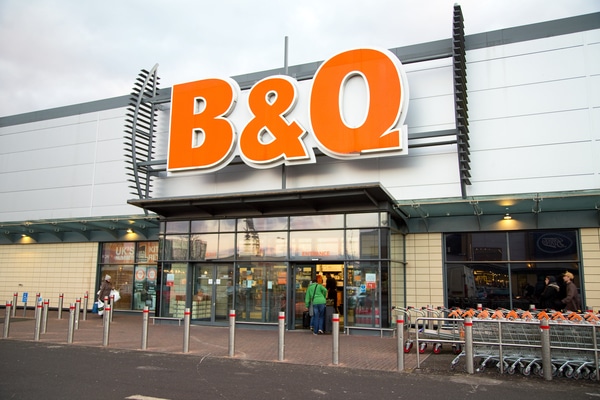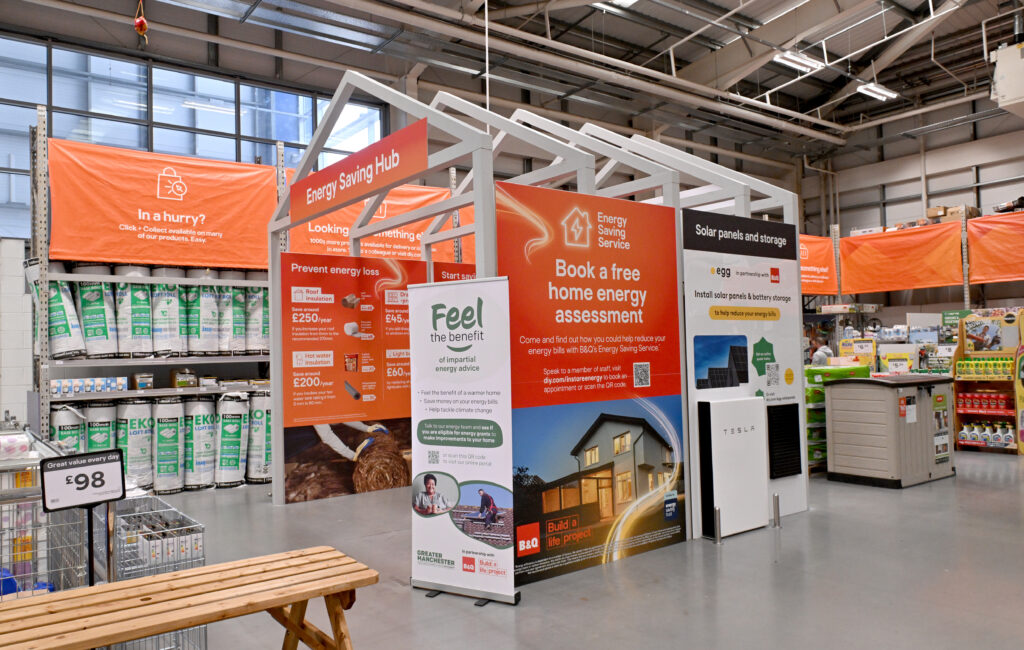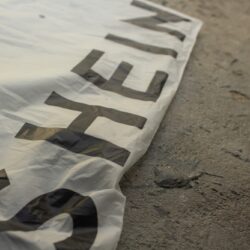// Kingfisher sales rise 7.6%
// The company experienced no impact on demand due to the coronavirus outbreak
// Kingfisher shut 221 stores in France and 28 in Spain
Kingfisher has reported a rise in sales and said its stock availability remains high despite the coronavirus outbreak.
The group, which owns B&Q and Screwfix, said it experienced “no impact on demand from Covid-19” in the year to March 14.
The company also saw growth across all businesses within our core markets, driven primarily by its ecommerce sales.
READ MORE: B&Q and Screwfix owner Kingfisher booted out of FTSE 100
In February, like-for-like sales increased 7.6 per cent across the group, or 2.3 per cent excluding the leap year impact.
While the coronavirus outbreak has led to uncertainty for many retailers, Kingfisher maintained that it has significant measures in place to contain costs and protect its financial position.
Kingfisher has cash equivalents of £250 million as of March 13, in addition to having access to two undrawn Revolving Credit Facilities (RCF) totalling £775 million provided by major banks.
However, Kingfisher has had to close stores in France and Spain after the countries announced they would close all non-essential places used by the public on March 15 to prevent the spread of the coronavirus.
All 221 of Kingfisher’s Castorama and Brico Dépôt stores in France have closed until April 14, while 28 stores in Spain also closed until March 29, following the government’s declaration of a two-week state of emergency.
Kingfisher said it is working to mitigate the implications of these closures, including via alternative routes to continue serving customers, via click-and-collect or home delivery.
Kingfisher’s 1100 stores across the UK, Ireland, Poland, Romania, Portugal and Russia remain open.
“We are committed to supporting local authorities and governments to limit the spread of the virus, and the health and safety of our colleagues and customers remains our top priority,” Kingfisher chief executive Thierry Garnier said.
Following the outbreak in Asia, Kingfisher formed a central committee to monitor and manage risks. It also established committees in all its retail businesses.
These committees continue to monitor closely the impact on all areas of our business, as well as ensuring publicly available advice is followed and that appropriate safeguards are quickly implemented.
Kingfisher has global sourcing offices in China, other Asian countries and Europe.
In China, 95 per cent of its vendors’ factories have reopened, with capacity starting to rebuild.
At this moment, over 85 per cent of placed orders have a less than four-week delay against their original schedule.
In Italy, the second-worst affected country after China, vendor factories have remained open to date, but uncertainty remains over how goods can be transported from the region.
Earlier this month, Kingfisher was relegated from the FTSE 100 following a quarterly reshuffle of the sought-after stock market ranking.
The news came after a tough trading period for the group, which has so far seen Garnier attempting to revitalise the company.
Given recent government actions, Kingfisher said it is not yet able to predict the impact of COVID-19 on its 2020/21 full year results.
To minimise the risk of spread, Kingfisher will deliver its 2019/20 full year results with a live webcast-based results presentation for analysts and investors as scheduled on March 24.
Click here to sign up to Retail Gazette‘s free daily email newsletter


















